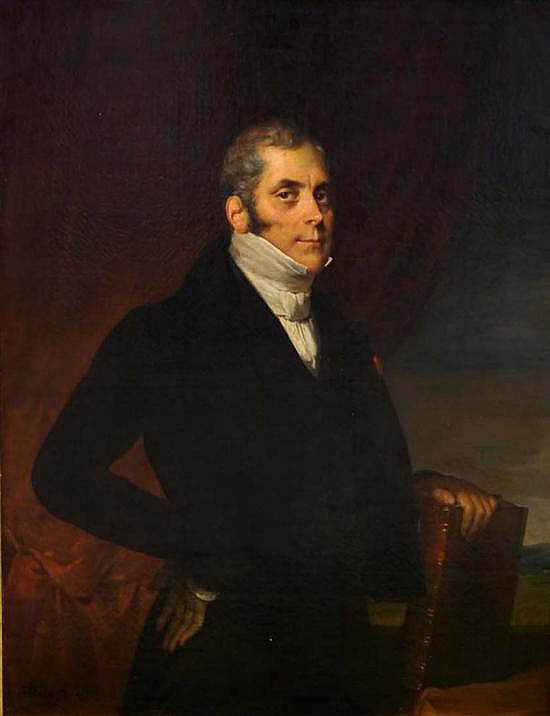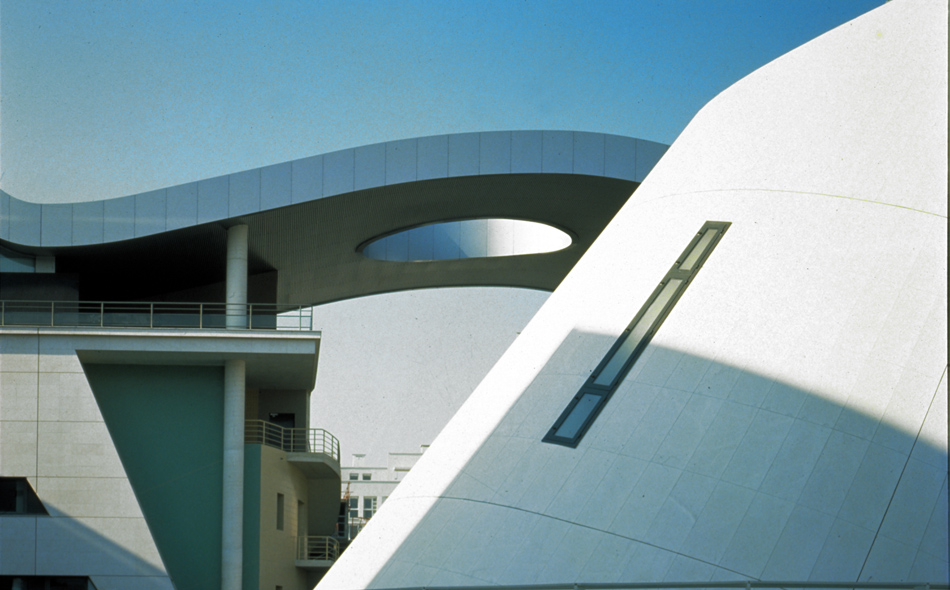|
Marie Gabriel Augustin Savard
Marie Gabriel Augustin Savard (21 August 1814 – 7 June 1881) was a French composer and teacher. Savard was a teacher at the Paris Conservatory in tonic solfa, harmony and figured bass. Among his pupils were Jules Massenet, Cécile Chaminade, Eduard Reuss, and Edward MacDowell. Massenet describes him fondly in his memoires.Morris Foundation His works include the following: * ''Kyrie'' (1860) (Niedermeyer) * ''Messe solennelle'' (1865) He also published books on music theory and a compilation of chants.Charles Bergmans (2008) ''La Musique Et Les Musiciens'', BiblioBazaar, LLC. These include: * ''Cours complet d'Harmonie théorique et pratique'' (1853) and * ''P ... [...More Info...] [...Related Items...] OR: [Wikipedia] [Google] [Baidu] |
Daniel Auber
Daniel-François-Esprit Auber (; 29 January 178212 May 1871) was a French composer and director of the Paris Conservatoire. Born into an artistic family, Auber was at first an amateur composer before he took up writing operas professionally when the family's fortunes failed in 1820. He soon established a professional partnership with the librettist Eugène Scribe that lasted for 41 years and produced 39 operas, most of them commercial and critical successes. He is mostly associated with opéra-comique and composed 35 works in that genre. With Scribe he wrote the first French grand opera, ''La Muette de Portici'' (The Dumb Woman of Portici) in 1828, which paved the way for the large-scale works of Giacomo Meyerbeer. Auber held two important official musical posts. From 1842 to 1871 he was director of France's premier music academy, the Paris Conservatoire, which he expanded and modernised. From 1852 until the fall of the Second Empire in 1870 he was director of the imperial chap ... [...More Info...] [...Related Items...] OR: [Wikipedia] [Google] [Baidu] |
1881 Deaths
Events January–March * January 1– 24 – Siege of Geok Tepe: Russian troops under General Mikhail Skobelev defeat the Turkomans. * January 13 – War of the Pacific – Battle of San Juan and Chorrillos: The Chilean army defeats Peruvian forces. * January 15 – War of the Pacific – Battle of Miraflores: The Chileans take Lima, capital of Peru, after defeating its second line of defense in Miraflores. * January 24 – William Edward Forster, chief secretary for Ireland, introduces his Coercion Bill, which temporarily suspends habeas corpus so that those people suspected of committing an offence can be detained without trial; it goes through a long debate before it is accepted February 2. * January 25 – Thomas Edison and Alexander Graham Bell form the Oriental Telephone Company. * February 13 – The first issue of the feminist newspaper ''La Citoyenne'' is published by Hubertine Auclert. * February 16 – The Canadi ... [...More Info...] [...Related Items...] OR: [Wikipedia] [Google] [Baidu] |
1814 Births
Events January * January 1 – War of the Sixth Coalition – The Royal Prussian Army led by Gebhard Leberecht von Blücher crosses the Rhine. * January 3 ** War of the Sixth Coalition – Siege of Cattaro: French garrison surrenders to the British after ten days of bombardment. ** War of the Sixth Coalition – Siege of Metz: Allied armies lay siege to the French city and fortress of Metz. * January 5 – Mexican War of Independence – Battle of Puruarán: Spanish Royalists defeat Mexican Rebels. * January 11 – War of the Sixth Coalition – Battle of Hoogstraten: Prussian forces under Friedrich Wilhelm Freiherr von Bülow defeat the French. * January 14 ** Treaty of Kiel: Frederick VI of Denmark cedes the Kingdom of Norway into personal union with Sweden, in exchange for west Pomerania. This marks the end of the real union of Denmark-Norway. ** War of the Sixth Coalition – Siege of Antwerp: Allied forces besiege French Ant ... [...More Info...] [...Related Items...] OR: [Wikipedia] [Google] [Baidu] |
Cité De La Musique
The Cité de la Musique ("City of Music"), also known as Philharmonie 2, is a group of institutions dedicated to music and situated in the Parc de la Villette, 19th arrondissement of Paris, France. It was designed with the nearby Conservatoire de Paris (CNSMDP) by the architect Christian de Portzamparc and opened in 1995. Part of François Mitterrand's Grands Projets, the Cité de la Musique reinvented La Villette – the former slaughterhouse district. It consists of an amphitheater, a concert hall that can accommodate an audience of 800–1,000, a music museum containing an important collection of music instruments from different cultural traditions, dating mainly from the fifteenth- to twentieth-century, a music library, exhibition halls and workshops. In 2015 it was renamed Philharmonie 2 as part of the Philharmonie de Paris when a larger symphony hall was built by Jean Nouvel and named Philharmonie 1. Its official address is 221, Avenue Jean Jaurès, 75019 Paris. Philharmo ... [...More Info...] [...Related Items...] OR: [Wikipedia] [Google] [Baidu] |
Marie Emmanuel Augustin Savard
Marie Emmanuel Augustin Savard (15 May 1861, Paris – 6 December 1942, Lyons) was a French composer. He was the son of Marie Gabriel Augustin Savard.Morris Foundation He studied with Jules Massenet at the Conservatoire de Paris and in 1886, he won first prize in the Prix de Rome for an oratorio entitled ''La Vision de Saül''. An opera, ''La Forêt'' (''légende musicale en 2 actes''), with a libretto by Laurent Tailhade (1854-1919) was published in 1910 (Enoch et cie., Paris). The music uses modal and whole-tone scales, as well as a great deal of chromaticism.''Grove Dictionary of Music and Musicians'' (2001) From 1902 until his retirement in 1921, he directed the Lyon Conservatory.French Wikipedia article on Savard. References |
Fromental Halévy
Jacques-François-Fromental-Élie Halévy, usually known as Fromental Halévy (; 27 May 179917 March 1862), was a French composer. He is known today largely for his opera '' La Juive''. Early career Halévy was born in Paris, son of the cantor Élie Halfon Halévy, who was the secretary of the Jewish community of Paris and a writer and teacher of Hebrew, and a French Jewish mother. The name Fromental (meaning 'oat grass'), by which he was generally known, reflects his birth on the day dedicated to that plant: 7 Prairial in the French Revolutionary calendar, which was still operative at that time. He entered the Conservatoire de Paris at the age of nine or ten (accounts differ), in 1809, becoming a pupil and later protégé of Cherubini. After two second-place attempts, he won the Prix de Rome in 1819: his cantata subject was ''Herminie''. As he had to delay his departure to Rome because of the death of his mother, he was able to accept the first commission that brought him ... [...More Info...] [...Related Items...] OR: [Wikipedia] [Google] [Baidu] |
Hector Berlioz
In Greek mythology, Hector (; grc, Ἕκτωρ, Hektōr, label=none, ) is a character in Homer's Iliad. He was a Trojan prince and the greatest warrior for Troy during the Trojan War. Hector led the Trojans and their allies in the defense of Troy, killing countless Greek warriors. He was ultimately killed in single combat by Achilles, who later dragged his dead body around the city of Troy behind his chariot. Etymology In Greek, is a derivative of the verb ἔχειν ''ékhein'', archaic form * grc, ἕχειν, hékhein, label=none ('to have' or 'to hold'), from Proto-Indo-European *'' seɡ́ʰ-'' ('to hold'). , or as found in Aeolic poetry, is also an epithet of Zeus in his capacity as 'he who holds verything together. Hector's name could thus be taken to mean 'holding fast'. Description Hector was described by the chronicler Malalas in his account of the ''Chronography'' as "dark-skinned, tall, very stoutly built, strong, good nose, wooly-haired, good beard, sq ... [...More Info...] [...Related Items...] OR: [Wikipedia] [Google] [Baidu] |
Ambroise Thomas
Charles Louis Ambroise Thomas (; 5 August 1811 – 12 February 1896) was a French composer and teacher, best known for his operas ''Mignon'' (1866) and ''Hamlet'' (1868). Born into a musical family, Thomas was a student at the Conservatoire de Paris, winning France's top music prize, the Prix de Rome. He pursued a career as a composer of operas, completing his first opera, ''La double échelle'', in 1837. He wrote twenty further operas over the next decades, mostly comic, but he also treated more serious subjects, finding considerable success with audiences in France and abroad. Thomas was appointed as a professor at the Conservatoire in 1856, and in 1871 he succeeded Daniel Auber as director. Between then and his death at his home in Paris twenty-five years later, he modernised the Conservatoire's organisation while imposing a rigidly conservative curriculum, hostile to modern music, and attempting to prevent composers such as César Franck and Gabriel Fauré from influencing t ... [...More Info...] [...Related Items...] OR: [Wikipedia] [Google] [Baidu] |
Institut De France
The (; ) is a French learned society, grouping five , including the Académie Française. It was established in 1795 at the direction of the National Convention. Located on the Quai de Conti in the 6th arrondissement of Paris, the institute manages approximately 1,000 foundations, as well as museums and châteaux open for visit. It also awards prizes and subsidies, which amounted to a total of over €27 million per year in 2017. Most of these prizes are awarded by the institute on the recommendation of the . History The building was originally constructed as the Collège des Quatre-Nations by Cardinal Mazarin, as a school for students from new provinces attached to France under Louis XIV. The inscription over the façade reads "JUL. MAZARIN S.R.E. CARD BASILICAM ET GYMNAS F.C.A M.D.C.LXI", attesting that Mazarin ordered its construction in 1661. The Institut de France was established on 25 October 1795, by the National Convention. On 1 January 2018, Xavier Darcos took ... [...More Info...] [...Related Items...] OR: [Wikipedia] [Google] [Baidu] |
Paris Conservatory
The Conservatoire de Paris (), also known as the Paris Conservatory, is a college of music and dance founded in 1795. Officially known as the Conservatoire National Supérieur de Musique et de Danse de Paris (CNSMDP), it is situated in the avenue Jean Jaurès in the 19th arrondissement of Paris, France. The Conservatoire offers instruction in music and dance, drawing on the traditions of the 'French School'. Formerly the conservatory also included drama, but in 1946 that division was moved into a separate school, the Conservatoire National Supérieur d'Art Dramatique (CNSAD), for acting, theatre and drama. Today the conservatories operate under the auspices of the Ministry of Culture and Communication and are associate members of PSL University. The CNSMDP is also associated with the Conservatoire National Supérieur de Musique et de Danse de Lyon (CNSMDL). History École Royale de Chant On 3 December 1783 Papillon de la Ferté, ''intendant'' of the Menus-Plaisirs du Roi, pro ... [...More Info...] [...Related Items...] OR: [Wikipedia] [Google] [Baidu] |
Académie Des Beaux-arts
An academy (Attic Greek: Ἀκαδήμεια; Koine Greek Ἀκαδημία) is an institution of secondary or tertiary higher learning (and generally also research or honorary membership). The name traces back to Plato's school of philosophy, founded approximately 385 BC at Akademia, a sanctuary of Athena, the goddess of wisdom and skill, north of Athens, Greece. Etymology The word comes from the ''Academy'' in ancient Greece, which derives from the Athenian hero, ''Akademos''. Outside the city walls of Athens, the gymnasium was made famous by Plato as a center of learning. The sacred space, dedicated to the goddess of wisdom, Athena, had formerly been an olive grove, hence the expression "the groves of Academe". In these gardens, the philosopher Plato conversed with followers. Plato developed his sessions into a method of teaching philosophy and in 387 BC, established what is known today as the Old Academy. By extension, ''academia'' has come to mean the accumulation, d ... [...More Info...] [...Related Items...] OR: [Wikipedia] [Google] [Baidu] |









